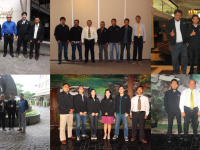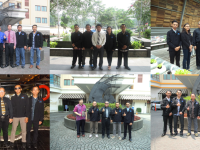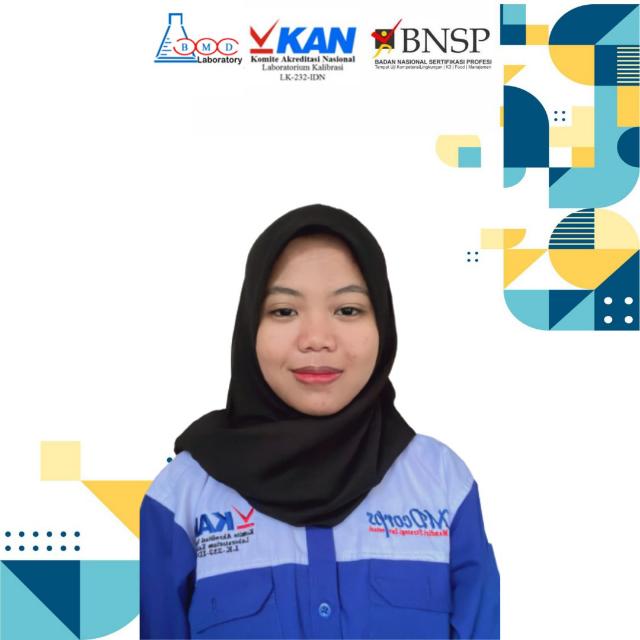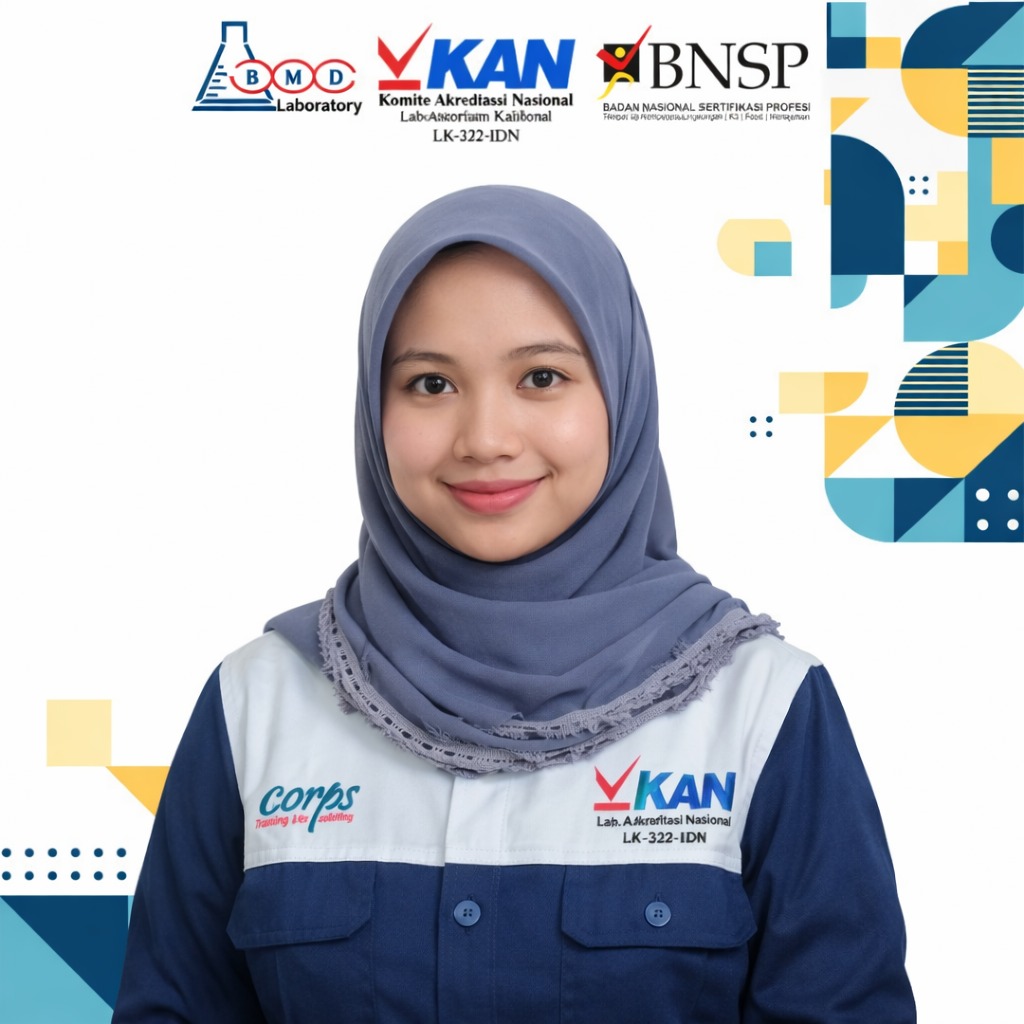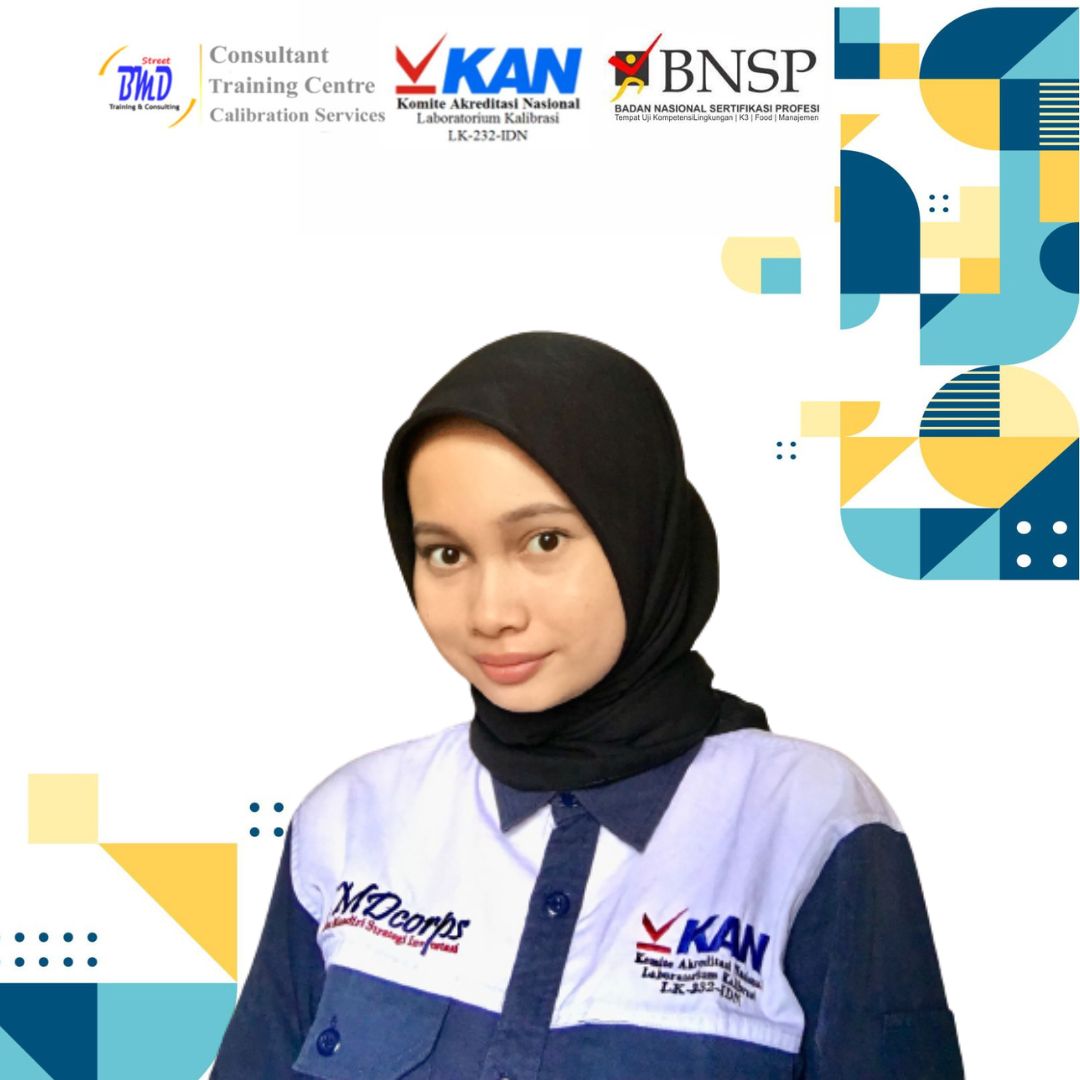LATAR BELAKANG :
Setelah menyelesaikan Training Practical Pumping Metdods For Petroleum Production System ini diharapkan peserta dapat :
- Memahami prinsip-prinsip dasar perhitungan reservoir minyak bumi yang berhubungan dengan penggunaan sucker-rod, electric submersible, hydraulic dan jet pump.
- Melakukan diagnosis sederhana dan memengerti pengelolaan data sumuran minyak yang diproduksi dengan sucker rod pumping, electric submersible, hydraulic dan jet pump.
- Membuat analisis sederhana terhadap data sumuran minyak, melakukan perhitungan-perhitungan kinerja sumuran sebagai hasil dari pemompaan dengan berbagai metoda sesuai dengan keadaan reservoirnya.
- Melakukan perhitungan-perhitungan kuantitatip sederhana dan melakukan optimisasi produksi untuk sumuran minyak yang diproduksi dengan sucker rod pumping, electric submersible, hydraulic dan jet pump sesuai dengan batasan operasinya.
PRE-REQUISITE :
Latar belakang : Operator/Sr. Operator/ Jr.Engineer
MATERI TRAINING :
SISTEM PRODUKSI LAPANGAN MINYAK BUMI
- Sistem Produksi Alamiah
- Sistem Produksi Dengan Pengangkatan Buatan
AZAS POMPA
- Sistem Produksi Alamiah
- Sistem Produksi Dengan Pengangkatan Buatan
- Kerja Pompa Sentrifugal
- Hukum Kesebangunan
- Kecepatan Spesifik (Nomor Jenis) dan Klasifikasi
- Performansi
- Kavitasi
- Momen awal
SPESIFIKASI POMPA
- Kapasitas Aliran
- Sifat-sifat Zat Cair
- Head
- Head Isap Positip Neto atau NPSH
- Penentuan Putaran dan Jenis Pompa
- Daya Poros dan Efiensi Pompa
- Koreksi Performansi untuk Zat Cair Kental
- Pemilihan Bahan
- Pemilihan Penggerak Mula
KONSTRUKSI POMPA
- Klasifikasi Menurut Jenis Impeler
- Klasifikasi Menurut Bentuk Rumah
- KIasifikasi Menurut Jumlah Tingkat
- Klasifikasi Menurut Letak Poros
- KIasifikasi Menurut Belahan Rumah
- KIasifikasi Menurut Sisi Masuk Impeler
- Pompa jenis Tumpuan Sumbu
- Pompa Jenis Khusus
- Alat Pengimbang Gaya AksiaI
OPERASI POMPA
- Kurva Head Kapasitas Pompa dan Sistem
- Operasi Paralel dan Operasi Seri
- Pengaturan Kapasitas
- Prosedur Menjalankan dan Menghentikan
- Benturan Air (Water Hammer)
- Surjing
- Fluktuasi Tekanan
- Operasi Otomatik
SUCKER ROD PUMP
- Pendahuluan
- Pump Intake Curve
- Optimisasi Produksi
- Rancangan Sucker Rod Pump API RP11L
- Komponen Alat Utama
- Faktor-faktor yang mempengaruhi gerakan rod
- Perencanaan pompa
- Dynagraph & Dynamometer
ELECTRIC SUBMERSIBLE PUMP
- Pendahuluan
- Dasar-dasar perhitungan ESP
- Konstruksi ESP
- Karakteristik pompa SRP
- Cara Memilih jenis pompa
- Aplikasi di Lapangan
POMPA HIDRAULIK
- Alat-alat permukaan
- Jenis-jenis unit pompa
- Jenis-jenis unit pompa
- Ukuran pompa
- Langkah-langkah pada pemilihan pompa hidraulik
POMPA JET
- Pendahuluan
- Persoalan gas
- Ukuran Nozzle dan throat
- Langkah-langkah pada perhitungan Jet pump
- Grafik Kelakuan pompa
- Menggunakan program mesin hitung
- Hasil lapangan
PCV (PROGRESSIVE CAVITY PUMP)
- Pendahuluan
- Deskripsi Peralatan
- Elastomer
- Perancangan
DURASI
3 Hari
FASILITAS
Normal Class
- Sertifikat, Modul (Soft dan Hard Copy) Flash disc, Training kit (Ballpoint Tas jinjing), Tas Ransel, Jacket, Lunch, 2x Coffe break, foto bersama dan pelatihan dilaksanakan di Hotel berbintang.
Online Class
- Softcopy Modul dan Sertifikat
INFORMATION & PROMO
Call : 021 756 3091
Fax : 021 756 3291
CONTACT PERSON
0813 8280 7230, 0812 8931 1641, 0821 3874 5980
Email: [email protected]
Website: https://bmdstreet.co.id
Jadwal Training Practical Pumping Metdods For Petroleum Production System 2025:
- 10-12 November 2025 Bogor
- 08-10 Desember 2025 Malang
Jadwal Training Practical Pumping Metdods For Petroleum Production System 2026:
- 13-15 Januari 2026 Malang
- 11-13 Februari 2026 Bogor
- 11-13 Maret 2026 Surabaya
- 15-17 April 2026 Medan
- 11-13 Mei 2026 Yogyakarta
- 10-12 Juni 2026 Jakarta
- 08-10 Juli 2026 Bali
- 12-14 Agustus 2026 Bogor
- 09-11 September 2026 Surabaya
- 14-16 Oktober 2026 Bandung
- 11-13 November 2026 Yogyakarta
- 09-11 Desember 2026 Jakarta
INVESTASI (TIDAK TERMASUK BIAYA AKOMODASI & PENGINAPAN):
Online Class
- Rp 6.100.000/peserta (Harga belum termasuk pajak dan promo)
Normal Class
- Rp. 12.000.000,-/peserta (Jakarta) (Harga belum termasuk pajak dan promo)
- Rp. 12.000.000-/peserta (Bandung) (Harga belum termasuk pajak dan promo)
- Rp. 13.100.000,-/peserta (Yogyakarta) (Harga belum termasuk pajak dan promo)
- Rp. 15.300.000,-/peserta (Bali) (Harga belum termasuk pajak dan promo)
- Rp. 16.100.000,-/peserta (Lombok) (Harga belum termasuk pajak dan promo)
- US$ 4780/peserta (Malaysia) (Harga belum termasuk pajak dan promo)
Kami menerima request waktu, tempat & fasilitas hubungi kami untuk informasi lebih lanjut.

